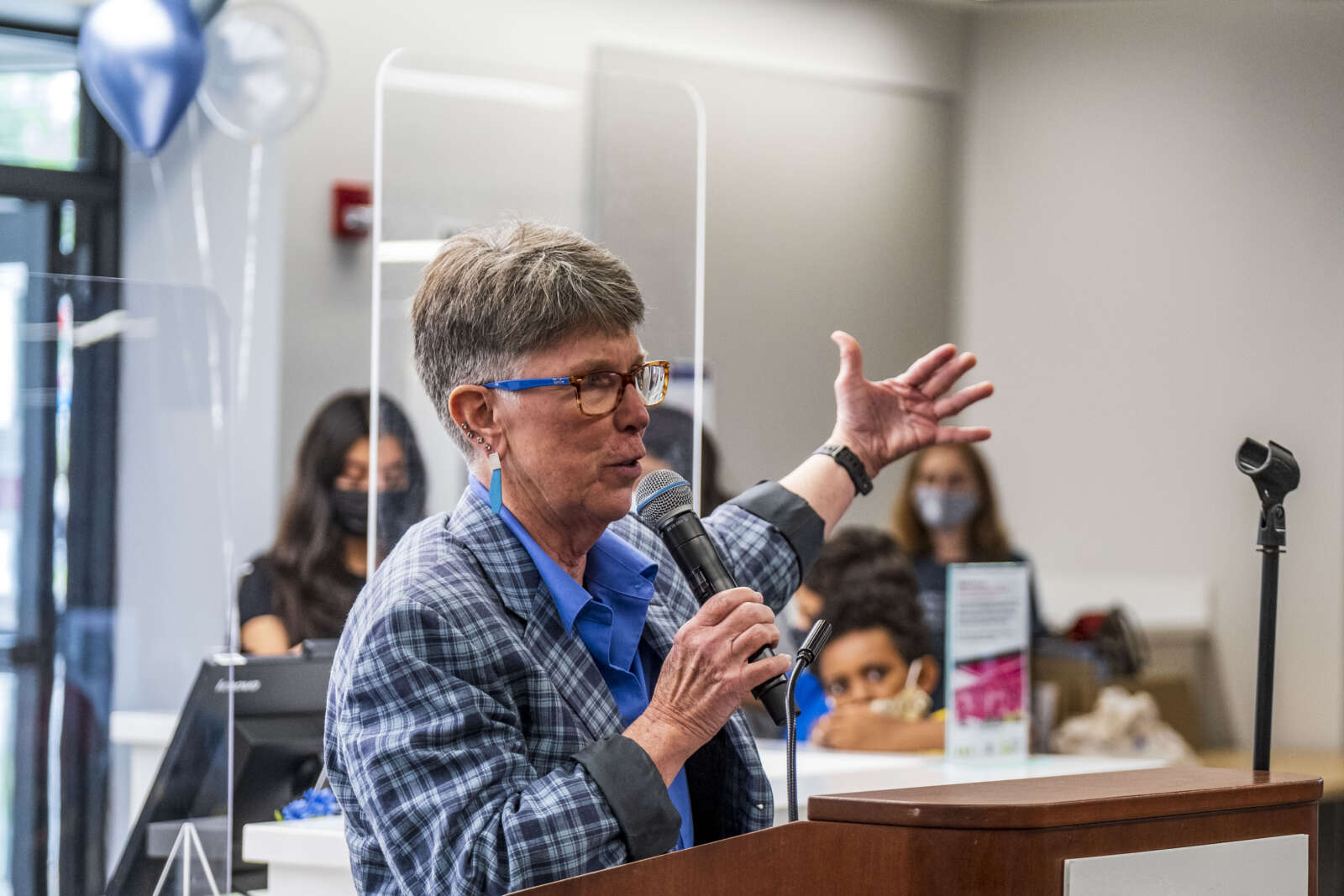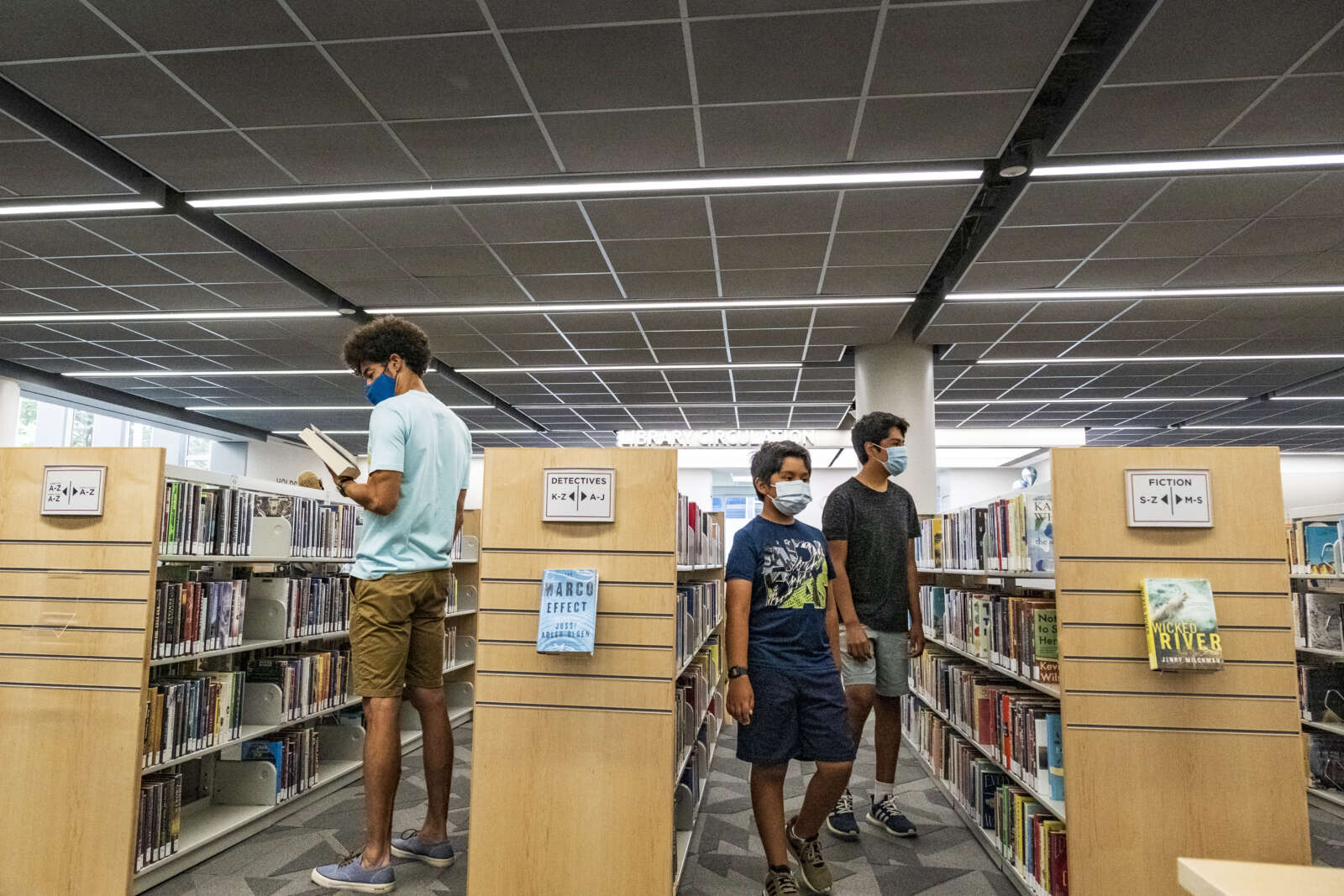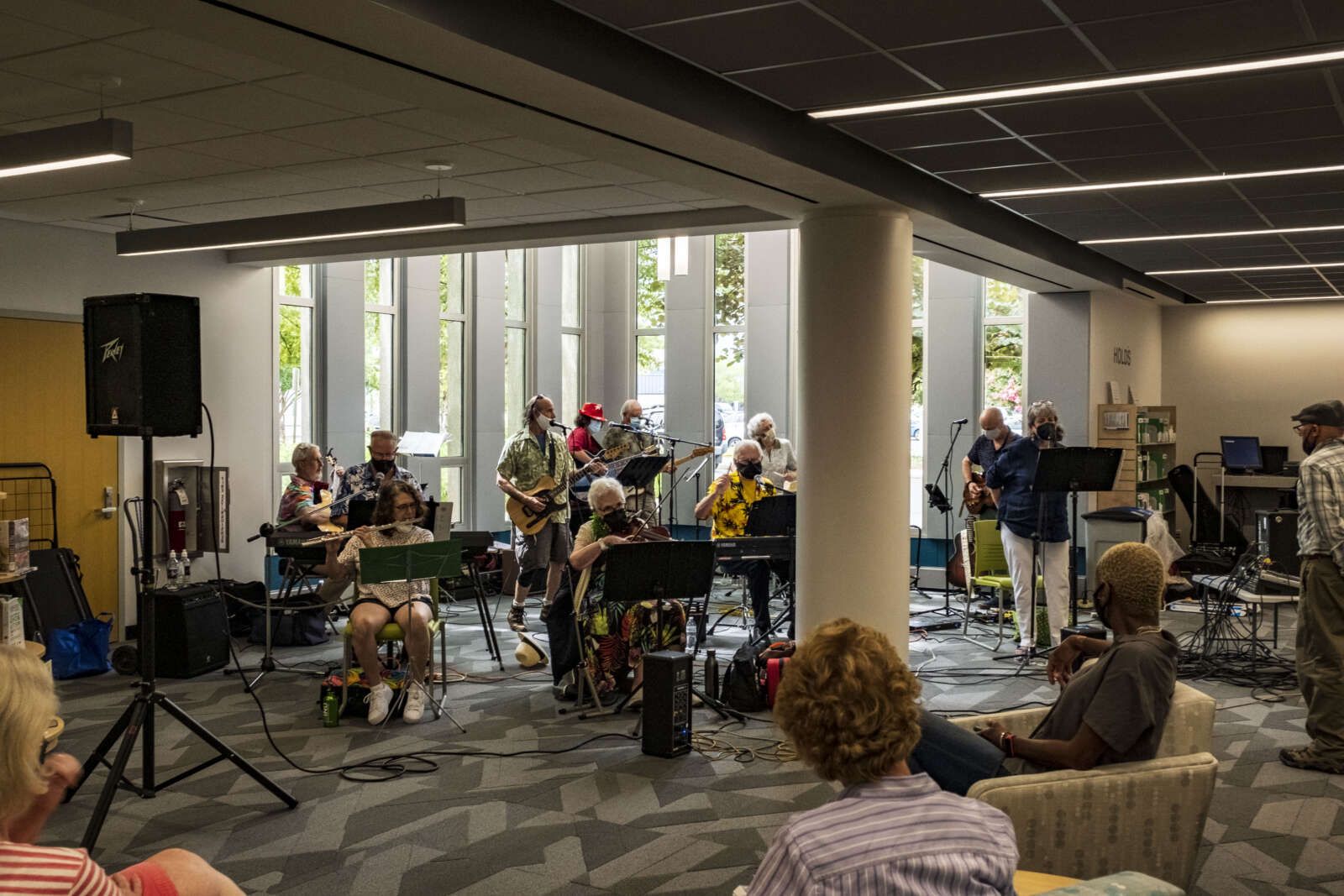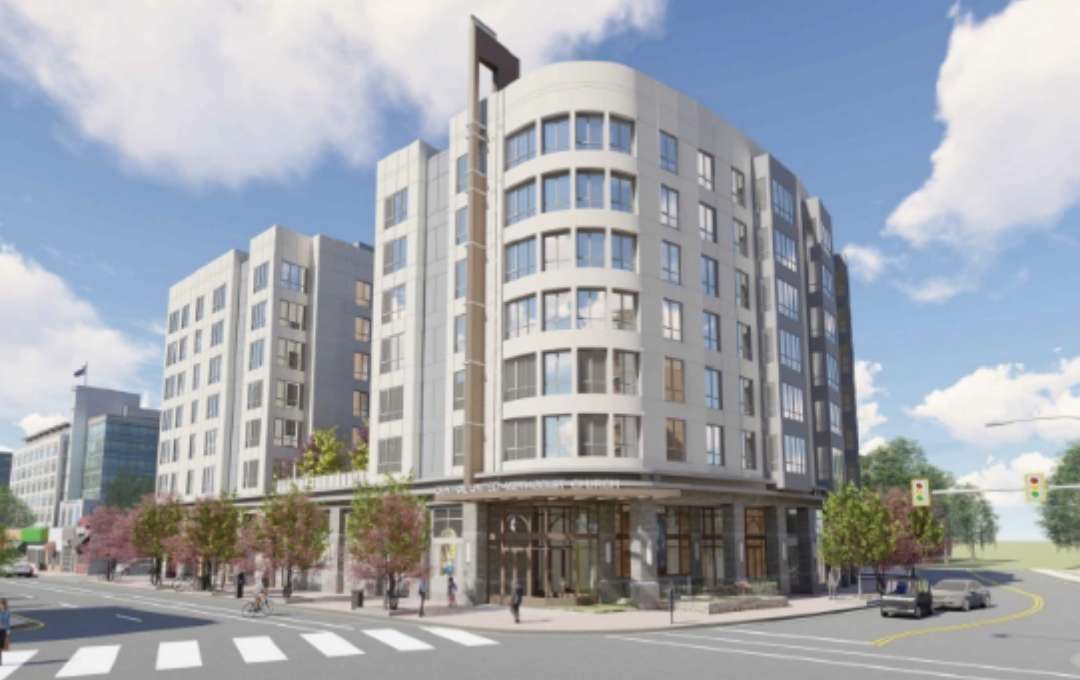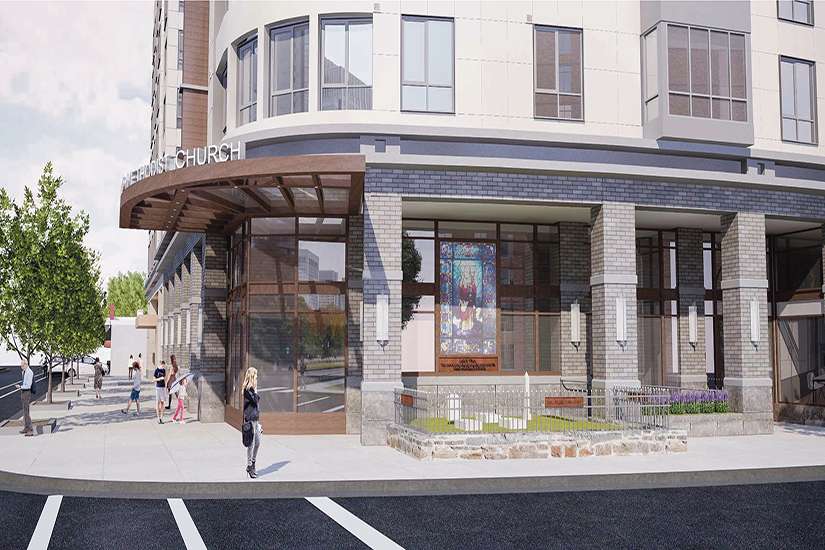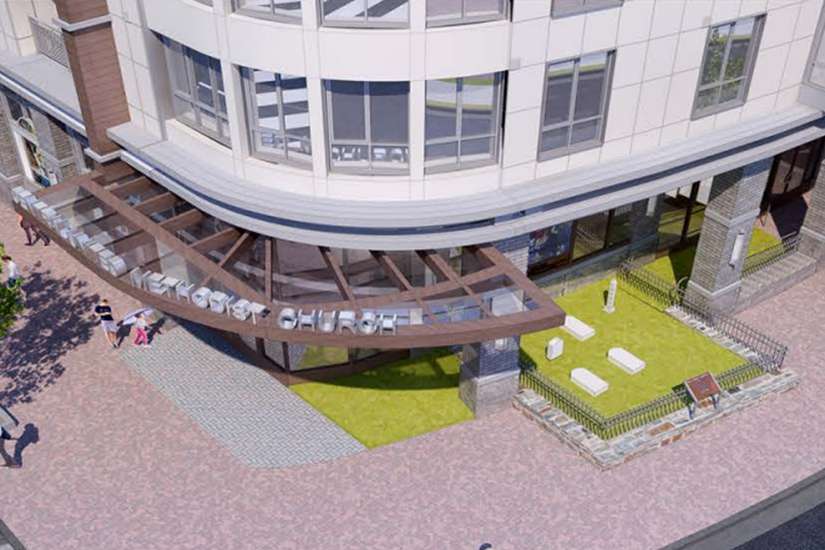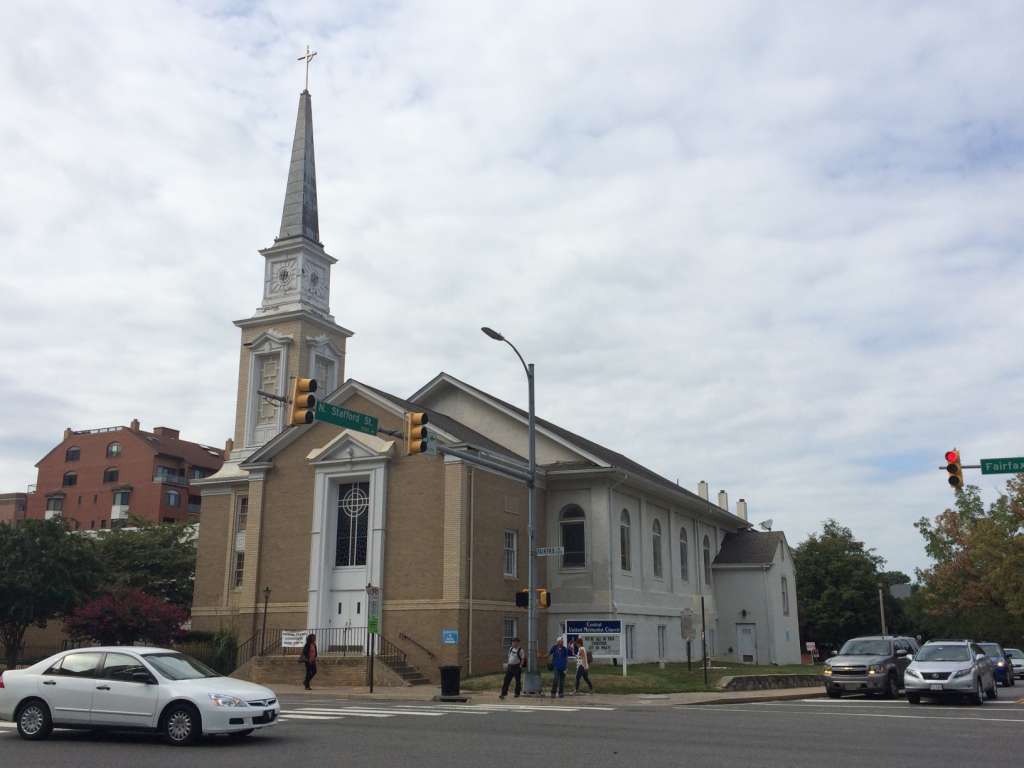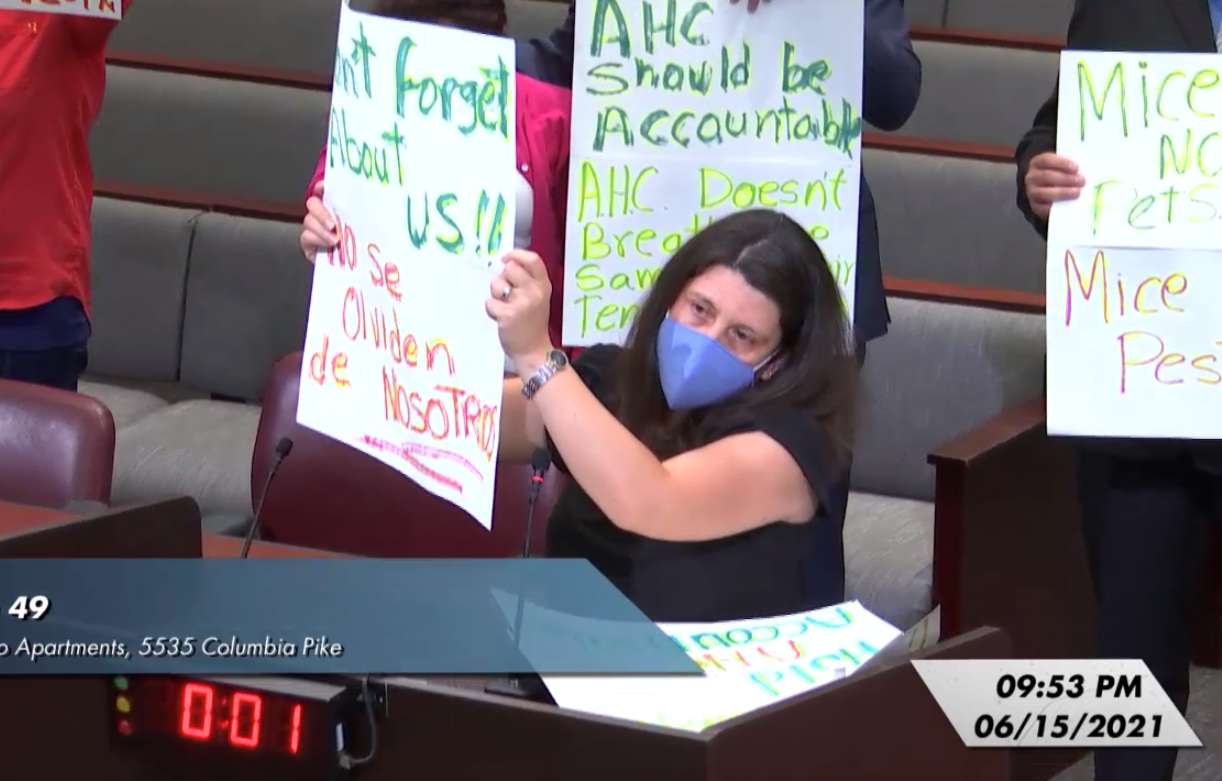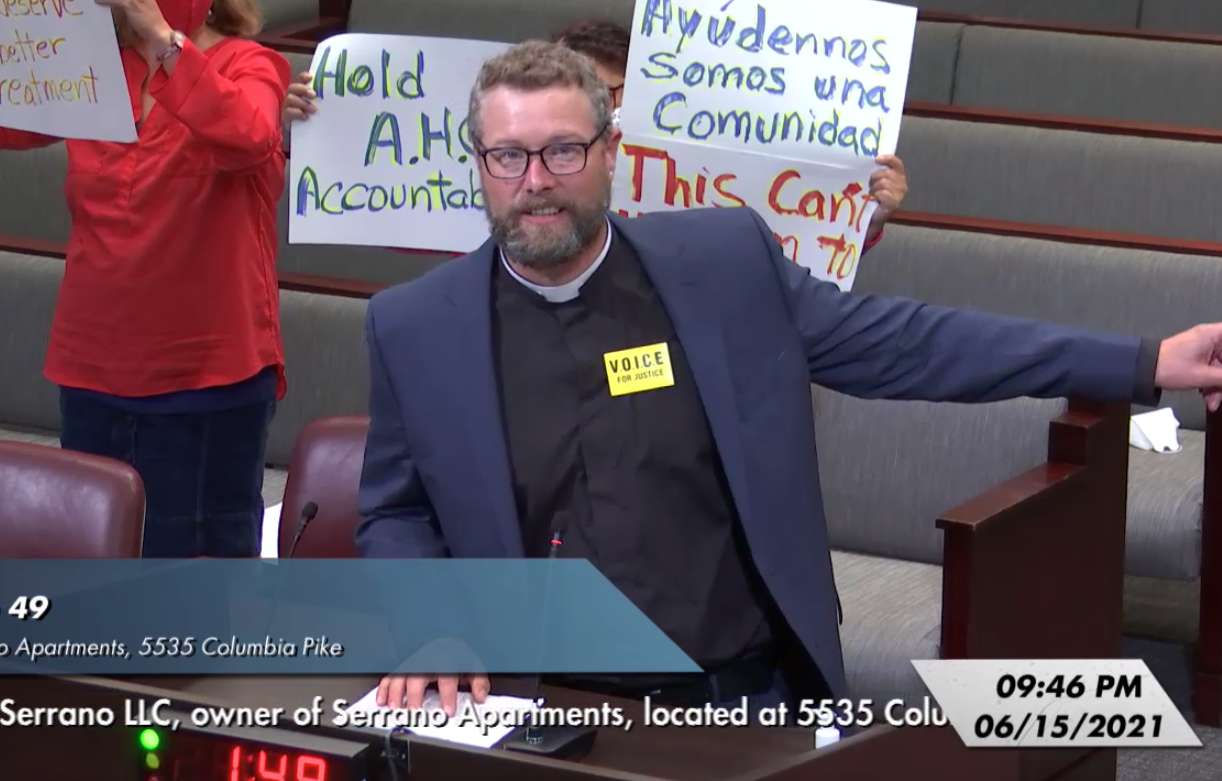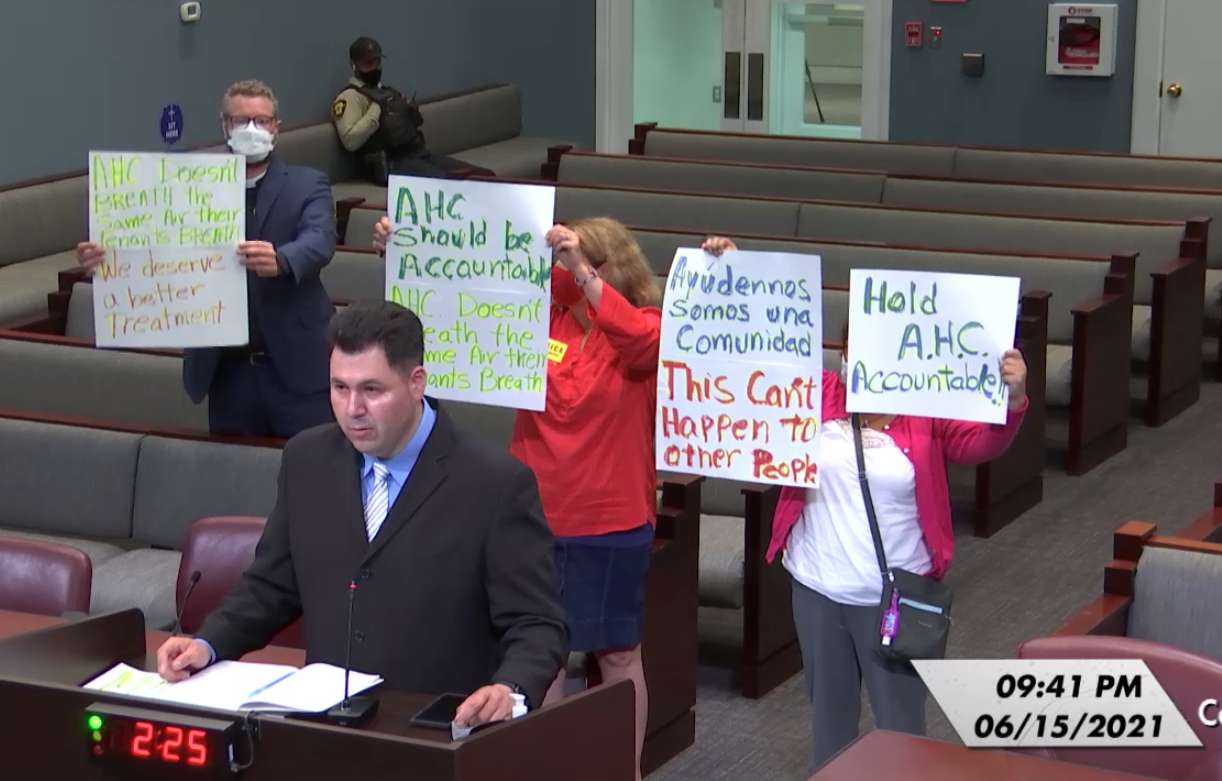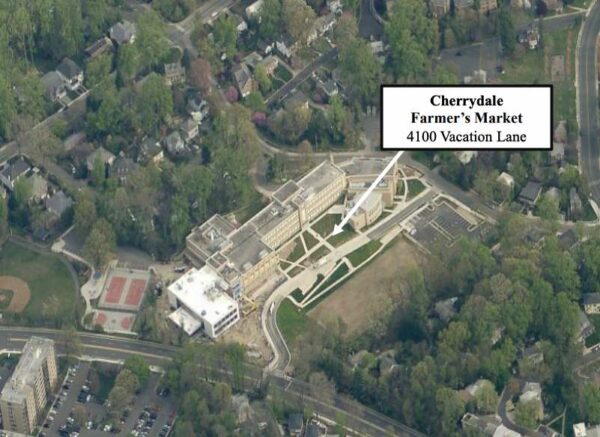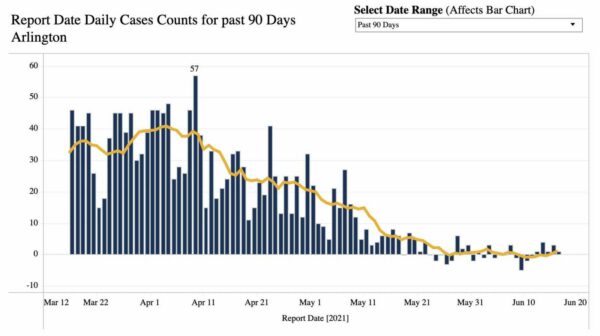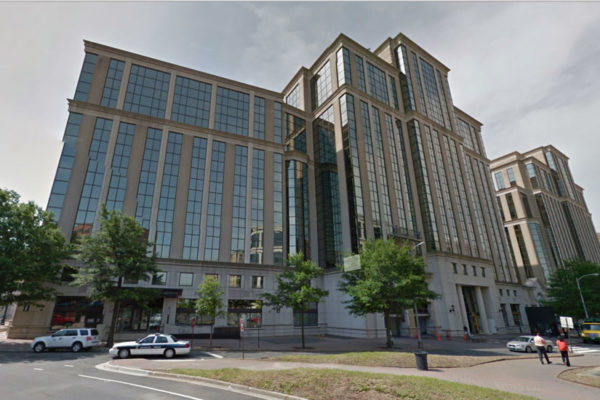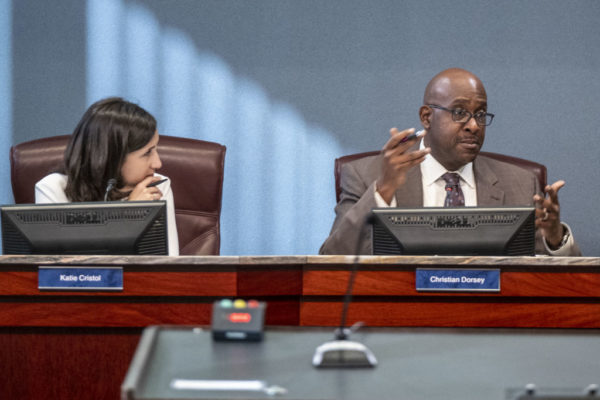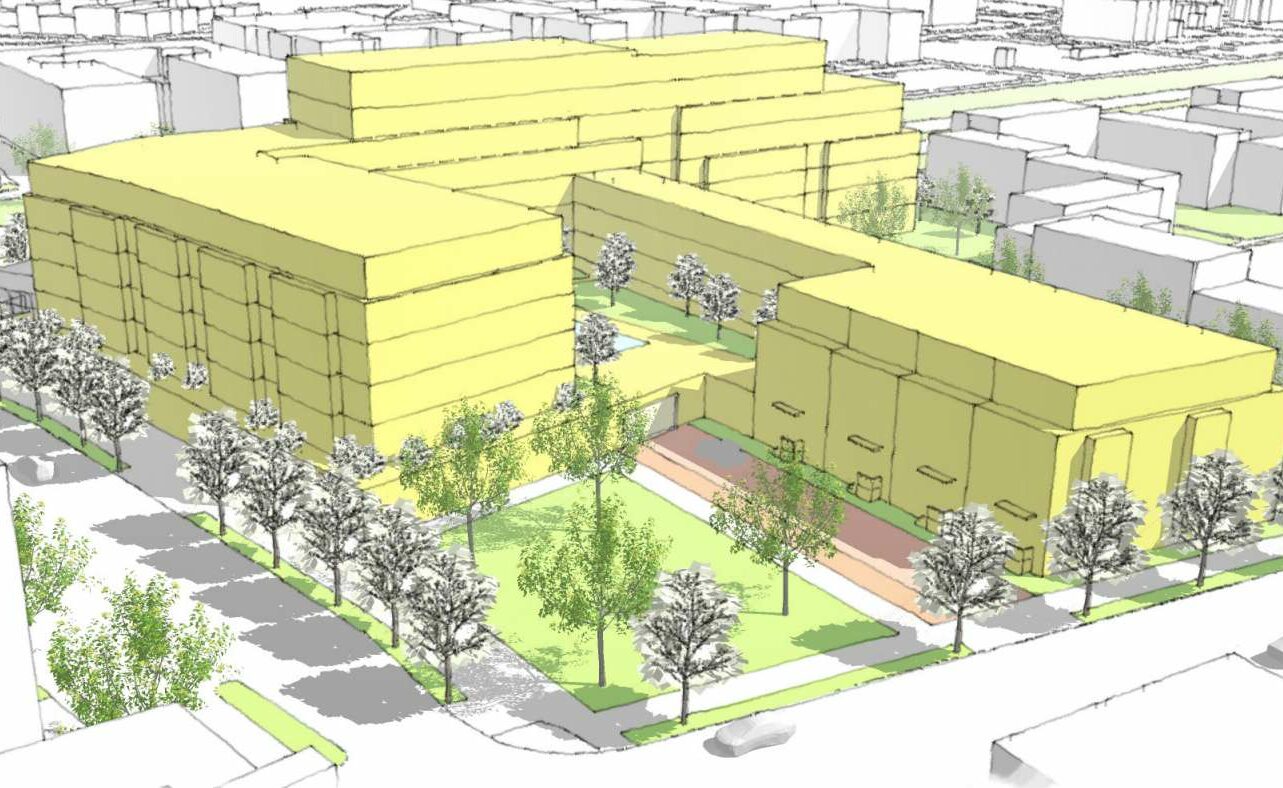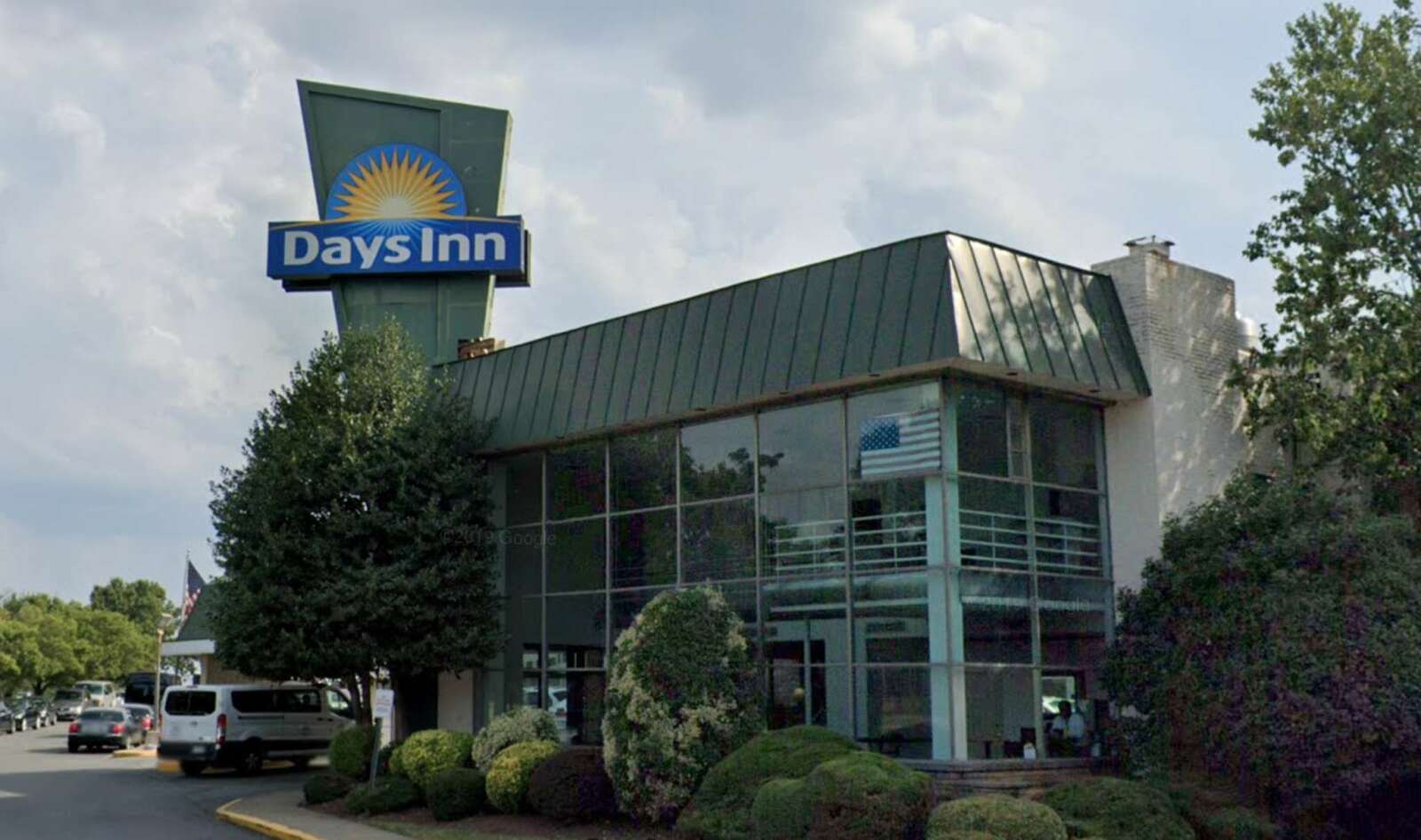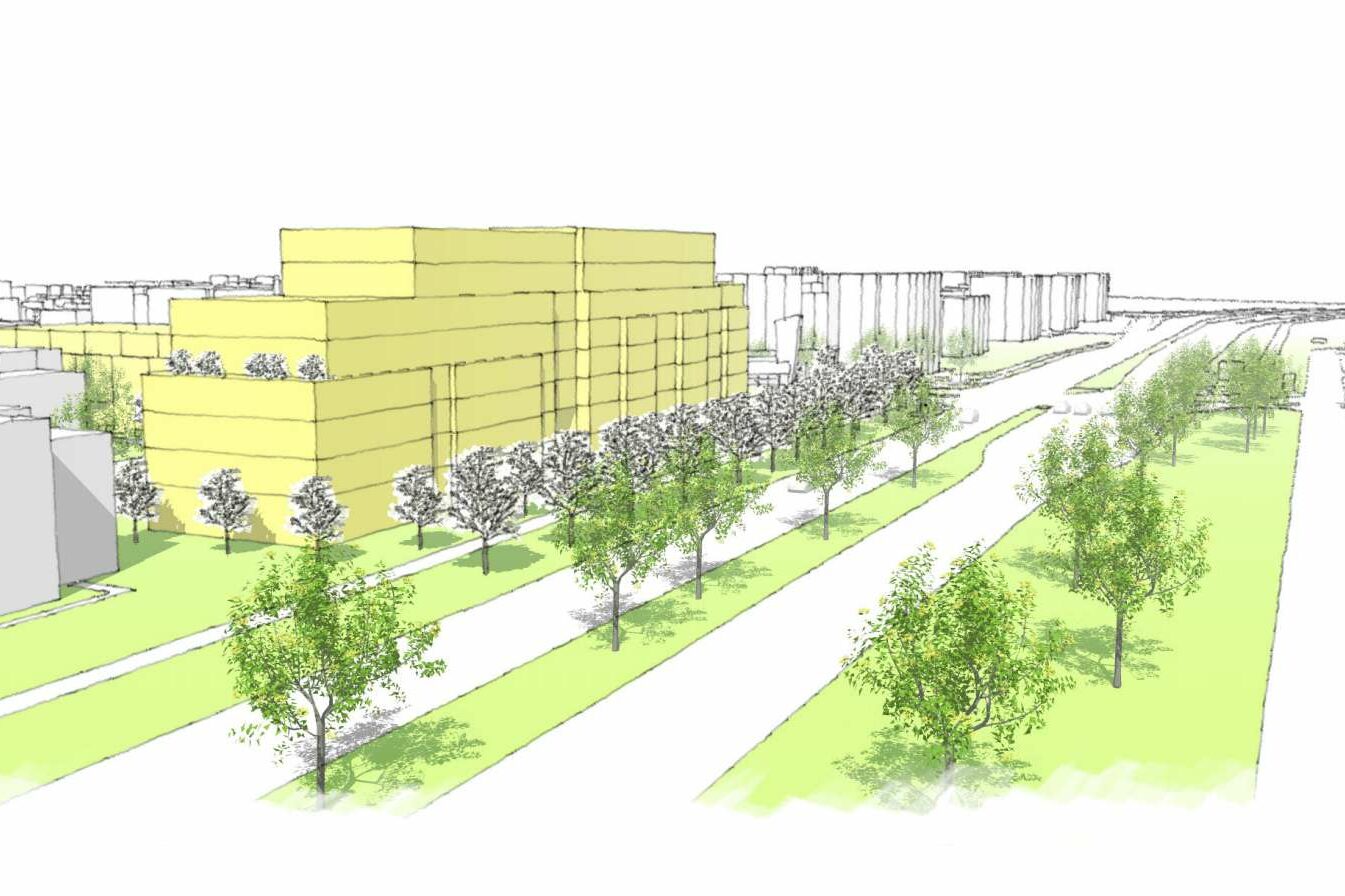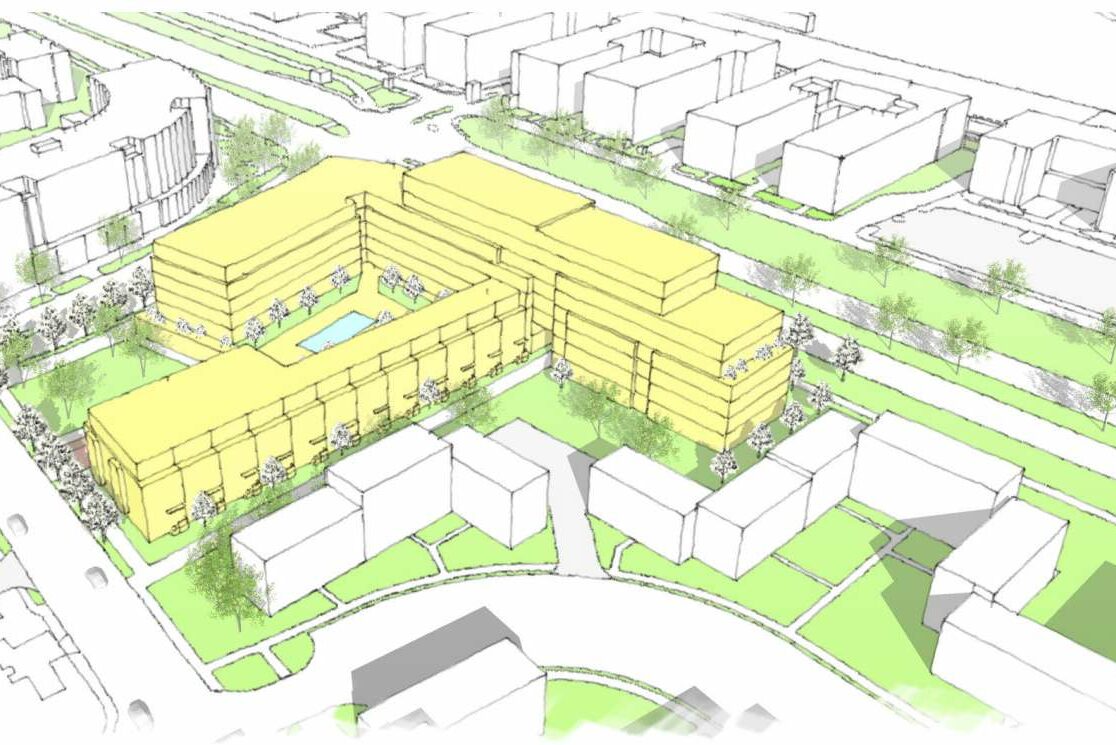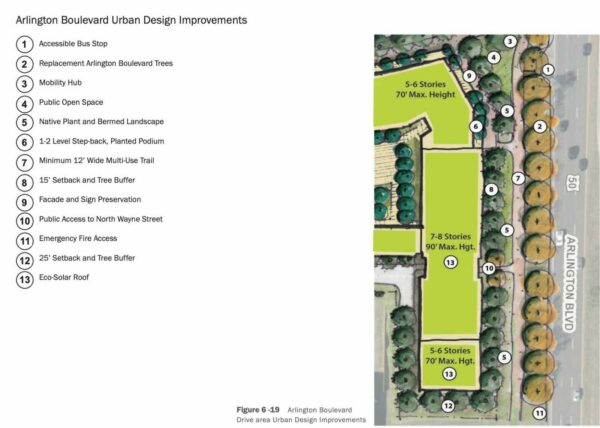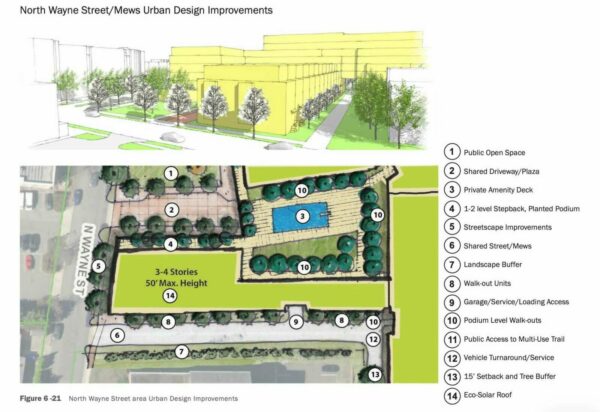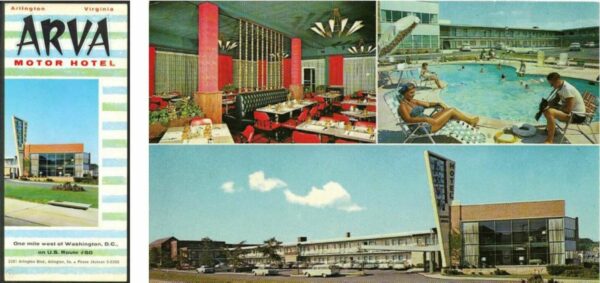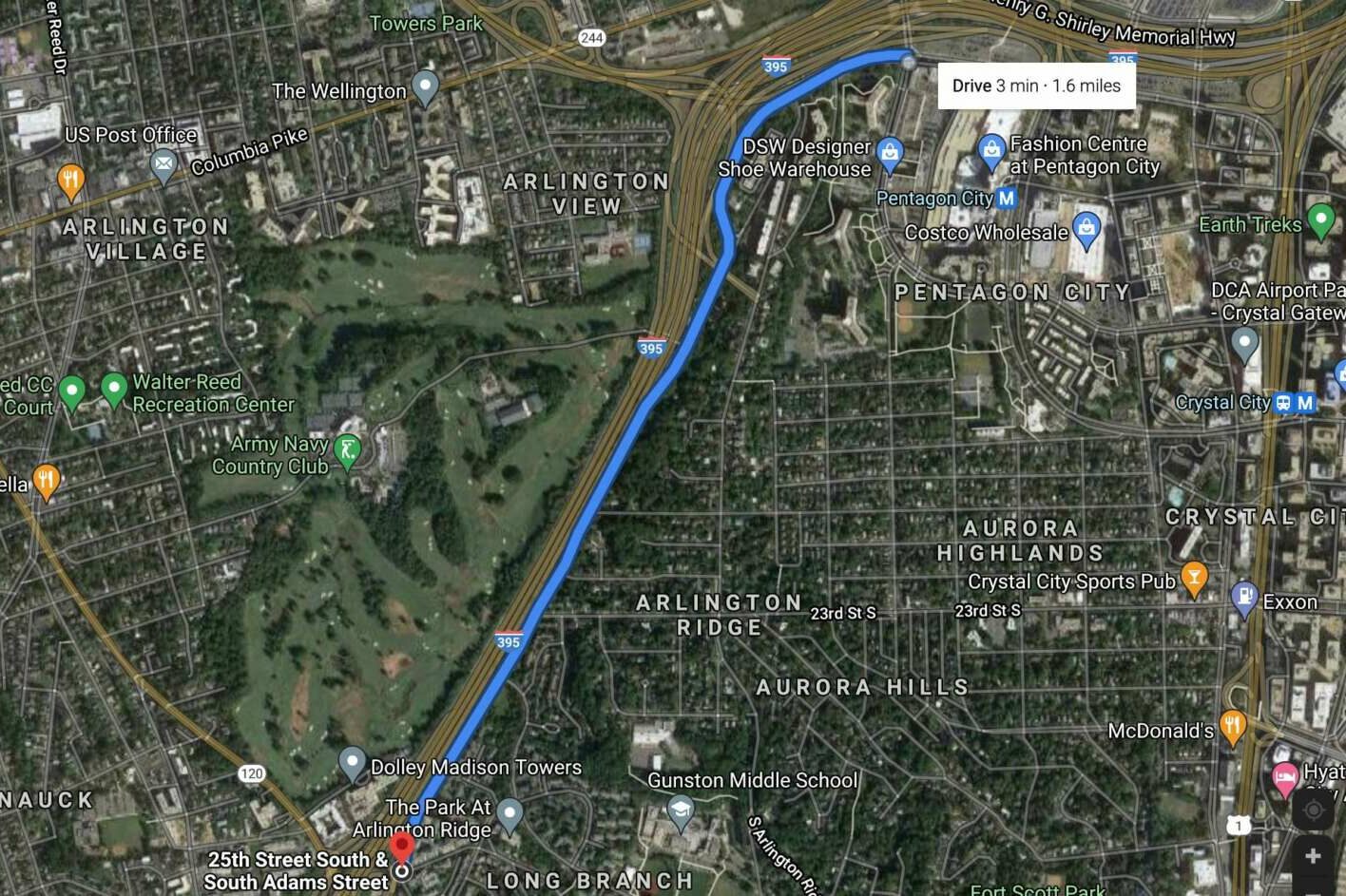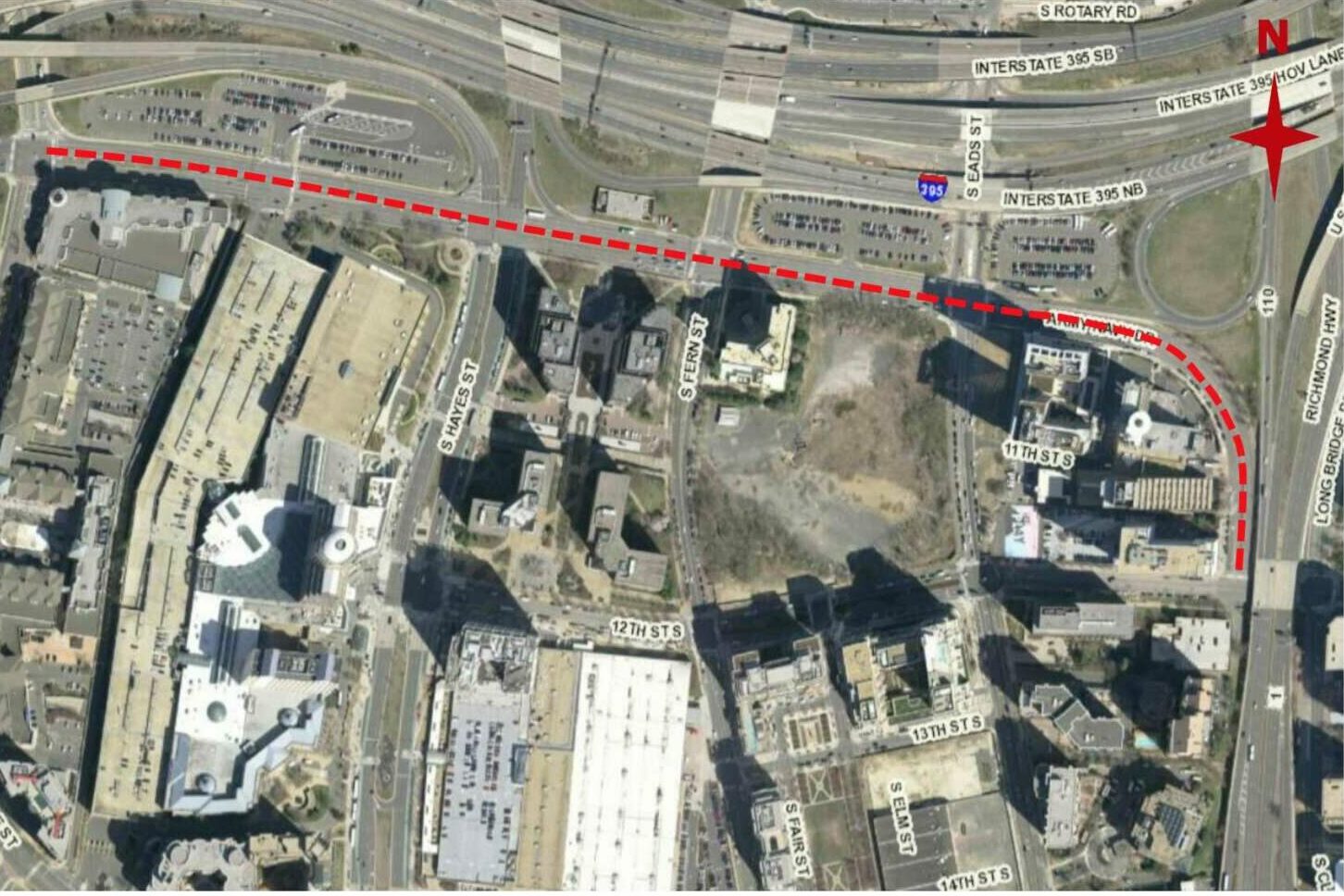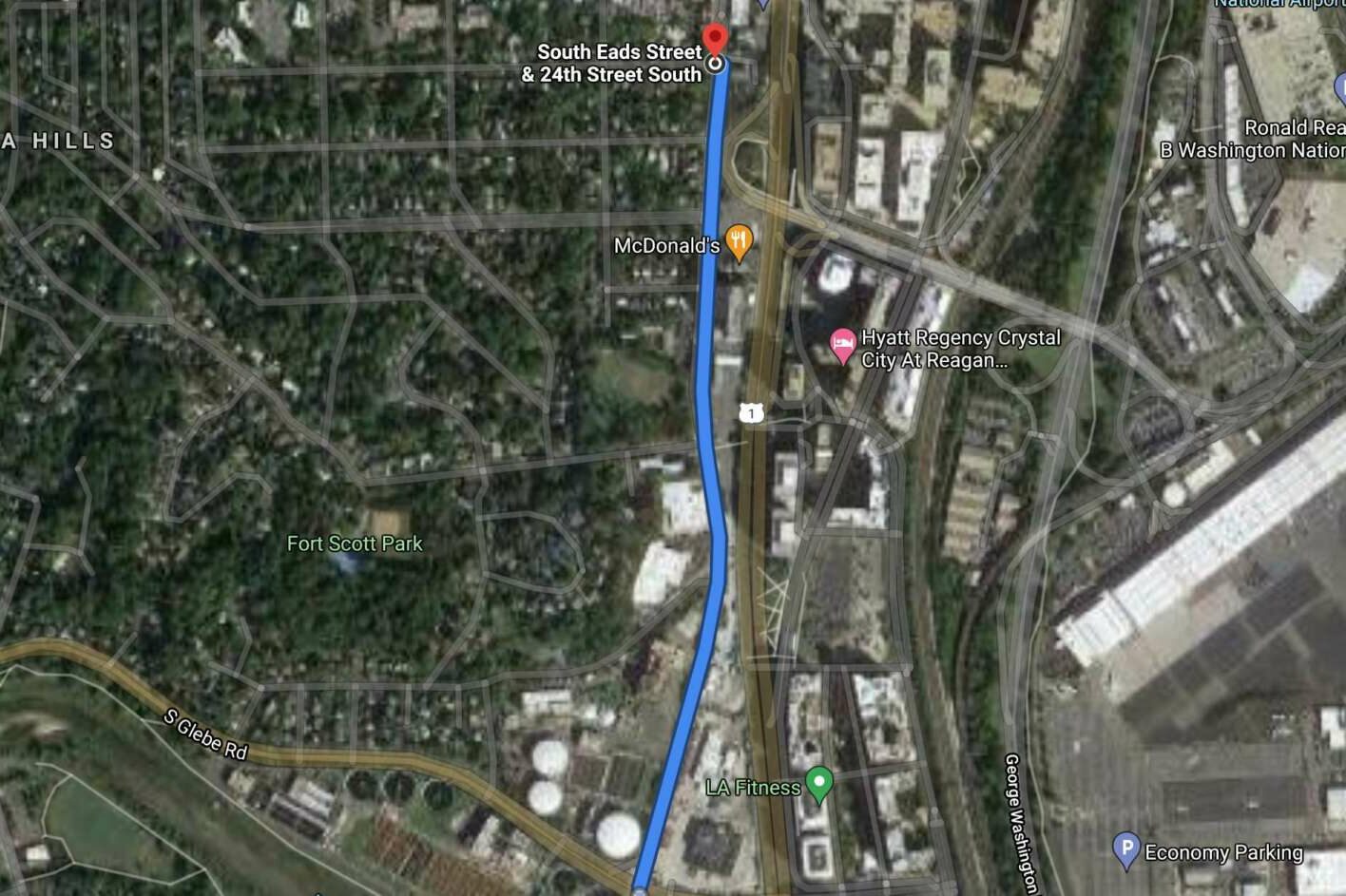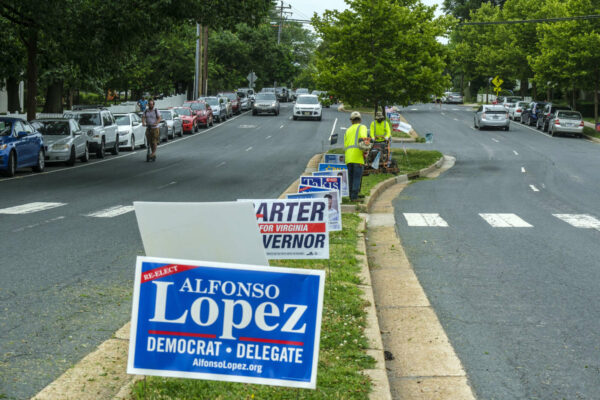(Updated at 2:40 p.m.) With a snip of a ribbon, the newly-renovated Columbia Pike Branch Library officially opened for the first time since March 2020.
The library on S. Walter Reed Drive, which first opened in 1975, underwent a significant makeover including new furnishings, updated carpeting, fresh coats of paint, additional meeting rooms, modernized audio-visual equipment and new lighting.
The 21,000-item collection has been consolidated to the first floor to make room for an expansion of the Arlington Tech high school program. The program is part of the Arlington Career Center, located on the second floor of the facility.
“We didn’t lose any collections, we gained a couple of meeting rooms, and we gained more discrete spaces,” Arlington Public Library Director Diane Kresh tells ARLnow. “[The renovation] opened up what had been a lot of wasted space. It really feels bigger.”
Renovations for the entire project, on the first and second floors, cost approximately $4.45 million, according to a spokesperson from Arlington Public Schools, which owns the building.
Kresh says APS’s ownership of the building presented a chance to make the library better.
“The library has always shared the space with schools. It’s a well-loved facility and showed a lot of wear and tear,” says Kresh. “So, when the schools planned to renovate and increase the space of the Career Center, that gave us an opportunity to consolidate down here and do a redesign.”
Kresh notes that while closing the libraries last year due to the pandemic was difficult for staff and the community, there was a “silver lining” — the renovations could get done.
The library opened to the public on Tuesday, but the celebration was held yesterday evening (Thursday).
With a vaccination rate close to 70% for adults, people packed the community library. There were donuts and cookies, and kids eating said treats while darting one way and another. A magician performed for a rapt audience. After remarks and ribbon cutting, a cover band churned out classics such as “Do Wah Diddy Diddy Dum Diddy.” The entire Arlington County Board was in attendance, as was County Manager Mark Schwartz and Del. Alfonso Lopez.
Board Vice-Chair Katie Cristol says celebrating the reopening of this library — her neighborhood library — after such a hard year is welcome.
“It’s a sign of restoration of things, things coming back to normal,” Cristol tells ARLnow. “It is also the first sign of the community being able to come back together, which is definitely what we see going on around here.”
Cristol said her favorite thing about coming to the library was to browse new fiction releases, but that’s changed.
“I now have a two-year old who loves books, so I think my favorite thing about the library is about to be this community room,” she said.
As of Tuesday, library services have expanded at five locations: Columbia Pike, Central Library, Aurora Hills, Shirlington and Westover. This ends the express service model that APL had implemented earlier this year.
New Hours at all Five Open Locations:
– Monday/Tuesday: 10 a.m. – 5 p.m.
– Wednesday/Thursday: 12 p.m. – 7 p.m.
– Friday/Saturday: 12 p.m. – 5 p.m. https://t.co/KNjso8PCS3— Arlington VA Pub Lib (@ArlingtonVALib) July 2, 2021
Patrons now have full access to library collections with no time limit on browsing. Spaced seating is available to use the public Wi-Fi along with full access to restrooms and water fountains.



